Find Help
More Items From Ergsy search
-

Cervical screening: Q&A | NHS
Relevance: 100%
-

The NHS is #StillHereToHelp with cervical screening
Relevance: 96%
-

What is cervical screening (smear test)?
Relevance: 93%
-

Cervical screening: what to expect | NHS
Relevance: 92%
-
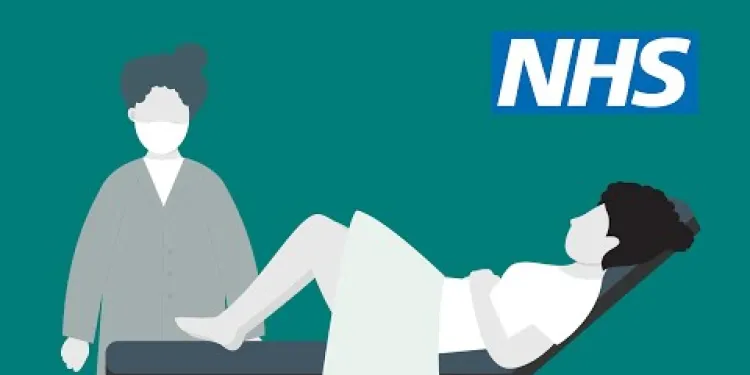
Cervical screening: how it's done | NHS
Relevance: 92%
-

Cervical screening for transgender men | NHS
Relevance: 92%
-

Cervical screening: what to expect | NHS
Relevance: 91%
-

NHSGGC - Cervical Cancer Screening - English
Relevance: 91%
-

When should cervical cancer screening begin?
Relevance: 89%
-

Don’t ignore your cervical screening invite | NHS
Relevance: 86%
-

Cervical screening (smear test) – what’s it all about?
Relevance: 86%
-

Accessing cervical screening with the right support for people with a learning disability
Relevance: 82%
-

Cervical screening for women who have experienced sexual assault | NHS
Relevance: 81%
-
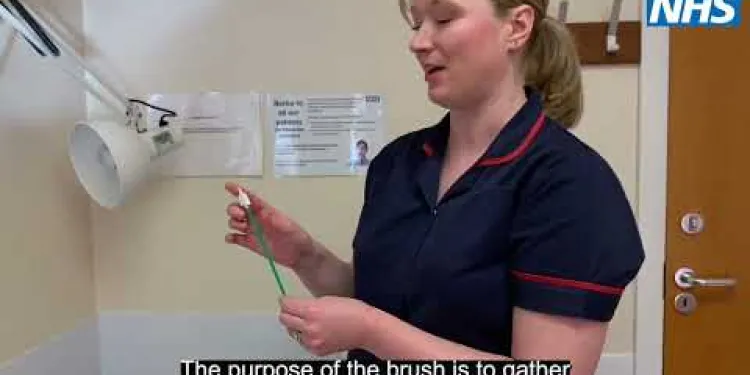
Booked in for your smear test (cervical screening) and not sure what to expect?
Relevance: 78%
-

What is the link between HPV and cervical cancer?
Relevance: 70%
-

Health Screenings You Should Know About
Relevance: 59%
-

What kinds of cancer screening are available?
Relevance: 58%
-

What is cancer screening?
Relevance: 56%
-
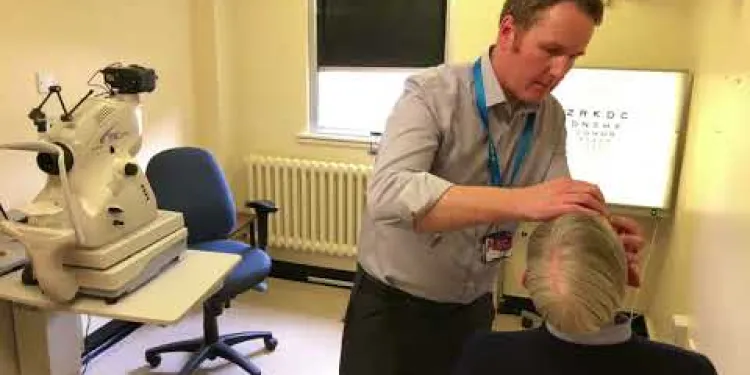
Derbyshire Diabetic Eye Screening - Diabetic Eye Screening
Relevance: 40%
-
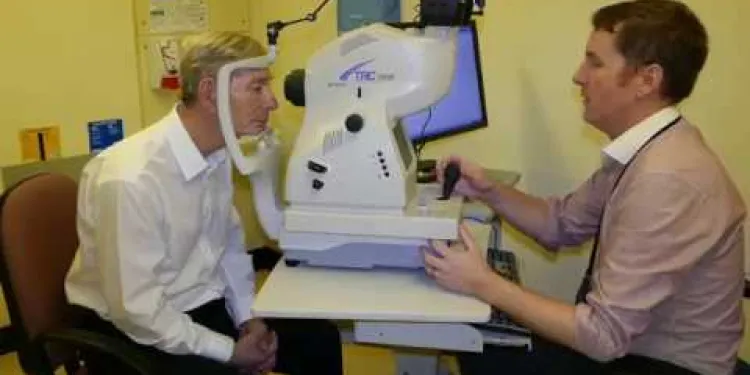
Derbyshire Diabetic Eye Screening - Your Screening Appointment
Relevance: 40%
-

Diabetes Eye Screening
Relevance: 39%
-

Is HPV testing available?
Relevance: 39%
-

AI Breast Cancer Screening in the UK
Relevance: 39%
-
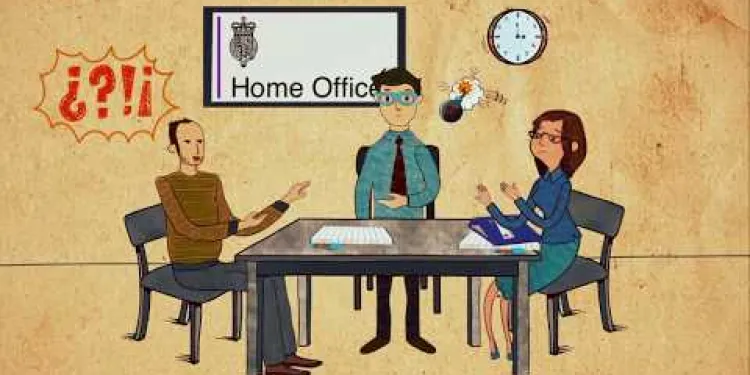
The asylum screening interview
Relevance: 39%
-

NHS breast cancer screening
Relevance: 38%
-

Are there eco-friendly mosquito screen options?
Relevance: 38%
-

Are mosquito window screens effective in the UK?
Relevance: 38%
-

Are Mosquito window screens effective?
Relevance: 38%
-

Are there retractable mosquito screens available?
Relevance: 38%
-

Is screening painful or risky for my child?
Relevance: 38%
-
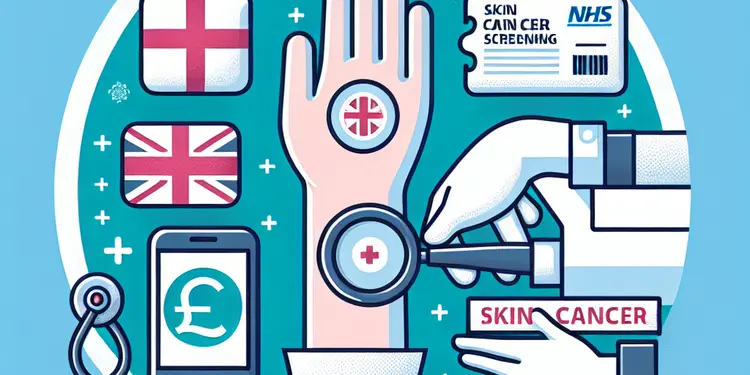
What is a skin cancer screening?
Relevance: 38%
-

How do I maintain my mosquito screens?
Relevance: 37%
-

Can pets damage mosquito screens?
Relevance: 36%
-

Do mosquito screens add value to my home?
Relevance: 36%
-

Is genetic screening available for cancer risk?
Relevance: 36%
-

Are mosquito screens effective against midges?
Relevance: 36%
-

AAA (Abdominal aortic aneurysm) screening
Relevance: 36%
-

What are the limitations of type 1 diabetes screening?
Relevance: 36%
-

Do mosquito screens provide insulation benefits?
Relevance: 36%
-

Can HPV lead to cancer?
Relevance: 36%
Cervical Screening: What to Expect | NHS
Introduction to Cervical Screening
Cervical screening, also known as a smear test, is an essential health screening program offered by the NHS in the United Kingdom. It aims to detect abnormal cells on the cervix that could potentially lead to cervical cancer. The test is not for cancer but is a preventive measure to stop cancer from developing. Women and people with a cervix aged 25 to 64 are invited for cervical screening.Booking Your Appointment
You will receive an invitation letter from the NHS when it is time for your screening. You can book an appointment with your GP or at a local sexual health clinic. Ensure to schedule it for a time when you are not having your period, as this can affect the accuracy of the test.During the Procedure
The cervical screening process itself is quick, usually taking around 5 minutes. You will be asked to undress from the waist down and lie back on an examination bed. A nurse or doctor will gently insert a speculum into your vagina to hold it open, allowing them to collect cells from your cervix using a small, soft brush. This may feel slightly uncomfortable but shouldn’t be painful.After the Procedure
Once the sample is collected, it will be sent to a laboratory for analysis. You might experience mild spotting or light bleeding afterward, which is normal. Results typically arrive within 2 to 6 weeks, indicating whether the cells are normal, inadequate, or abnormal. If abnormalities are found, you will be referred for further testing or treatment.Frequency of Screening
The frequency of cervical screening depends on your age:- 25 to 49 years: Every 3 years
- 50 to 64 years: Every 5 years
- Over 65: Only if recent tests were abnormal
Importance of Regular Screening
Regular cervical screening is vital for early detection and prevention of cervical cancer. Even if you have had the HPV vaccine, attending regular screenings remains crucial. Remember, cervical screening saves lives, so make sure you attend your appointments when invited. For more information, visit the NHS Cervical Screening webpage.Cervical Screening: What to Expect | NHS
What is Cervical Screening?
Cervical screening, or a smear test, is a health check offered by the NHS in the UK. It looks for changes in the cervix that could lead to cancer. It does not check for cancer, but helps stop it from starting. Women and people with a cervix aged 25 to 64 can have this test.How to Book Your Appointment
The NHS will send you a letter when it is time for your test. You can make an appointment with your GP or a local clinic. Try to book it when you are not on your period because this can change the test results.What Happens During the Test?
The test is quick, taking about 5 minutes. You will need to take off your clothes from the waist down and lie on a bed. A nurse or doctor will use a small tool to open your vagina and take some cells from your cervix with a soft brush. It might feel a bit uncomfortable but should not hurt.What Happens After the Test?
The cells go to a lab to be checked. You might have a little bleeding or spotting afterward, which is normal. You will get your results in 2 to 6 weeks. The results will say if your cells are normal or if more tests are needed. If there are changes, you will have follow-up tests or treatments.How Often Should You Have the Test?
How often you have the test depends on your age:- If you are 25 to 49 years old: Every 3 years
- If you are 50 to 64 years old: Every 5 years
- If you are over 65: Only if your last tests were not normal
Why Regular Screening is Important
Regular screening helps find problems early and stops cancer from starting. Even if you had the HPV vaccine, it is important to go to your screenings. Cervical screening helps save lives, so make sure to go when you are invited. For more help, visit the NHS Cervical Screening website.Frequently Asked Questions
What is cervical screening?
Cervical screening (a smear test) is a test to check the health of your cervix. It's not a test for cancer, but for preventing cancer by detecting any abnormal cells early.
Who is eligible for cervical screening?
In the UK, women and people with a cervix aged 25 to 64 are invited for cervical screening.
How often should I go for cervical screening?
You should have a cervical screening every 3 years if you're aged 25 to 49, and every 5 years if you're aged 50 to 64.
How do I book a cervical screening?
You can book a cervical screening with your GP or at a local sexual health clinic.
What happens during the test?
During the test, a small sample of cells is taken from your cervix using a soft brush. The test usually takes about 5 minutes.
Is the cervical screening test painful?
While the test might be a bit uncomfortable, it shouldn't be painful. You may feel some pressure when the speculum is inserted.
What should I do to prepare for the test?
You should avoid having the test during your period and try to relax as much as possible. There's no need to do anything special.
What happens if I miss my screening appointment?
If you miss your appointment, you should contact your GP to reschedule as soon as possible.
When will I get my results?
Results are usually sent out within 2 weeks of the test.
What if my result is abnormal?
An abnormal result means some changes in the cells of the cervix were found. It does not necessarily mean you have cancer. You may need more tests or treatment to prevent cancer from developing.
Can I have cervical screening if I’m pregnant?
Yes, but it's usually recommended to wait until at least 12 weeks after giving birth before having a screening test.
Do I need cervical screening if I had the HPV vaccine?
Yes, because the HPV vaccine does not protect against all types of HPV that might cause cervical cancer.
Can I stop having cervical screenings if I am 65 or older?
If you’ve had normal results in your last 3 tests, you do not need further screenings. However, if not, you may need to continue; consult with your GP.
Can I have a cervical screening if I am on my period?
It's best to have the test done when you're not on your period as the results might not be as accurate.
What if I’ve never been sexually active?
You still need cervical screening because it checks for abnormal cells in the cervix, not just HPV changes.
What is cervical screening?
Cervical screening is a health test for women. It checks the neck of the womb (called the cervix) to make sure it's healthy. It helps find any changes in the cells that could become problems later.
Doctors and nurses can help you with a cervical screening test. It's important because it helps keep you healthy.
A helpful tool is to talk to a nurse or doctor if you have questions. They can explain more and help you understand.
Cervical screening (also called a smear test) checks to make sure your cervix is healthy. It does not test for cancer. It helps stop cancer by finding any unusual cells before they turn into cancer.
Who can have a cervical screening test?
You can have a cervical screening test if:
- You are a woman or have a cervix.
- You are between the ages of 25 and 64.
Tools to help:
- Use a calendar to remember your appointment date.
- Ask a friend or family member to help you read any letters you get about screening.
In the UK, women and people with a cervix who are 25 to 64 years old are asked to go for a cervical check-up.
How often should I go for a cervical screening test?
You should have a cervical screening test to check your health. Here is how often you should go:
- If you are 25 to 49 years old: Go every 3 years.
- If you are 50 to 64 years old: Go every 5 years.
It is important to go to every screening. It helps keep you healthy. Ask a friend or family member to remind you when it is time to go.
If you are between 25 and 49 years old, you need a cervical screening every 3 years. If you are between 50 and 64 years old, you need it every 5 years.
How can I make an appointment for a cervical screening?
Here is how you can book your cervical screening:
- Call your doctor's office. They can help you make an appointment.
- Visit the doctor's office in person. You can talk to the receptionist there.
- Use the doctor's website if they have one. You might be able to book your appointment online.
If you need help, you can ask a friend or family member to help you book the appointment.
You can make an appointment for a cervical screening with your doctor (GP) or at a local sexual health clinic. You could ask a friend or family member to help you book the appointment or use a calendar to remind you when to go.
What happens in the test?
The test checks what you know. Someone will ask you to do things or answer questions. It is important to listen carefully.
Here is how to get ready:
- Take deep breaths to stay calm.
- If you don’t understand, ask them to say it again.
During the test, the doctor uses a soft brush to take a tiny bit of cells from your cervix. The test takes about 5 minutes.
Does the cervical screening test hurt?
The cervical screening test might feel a bit uncomfortable, but it should not hurt. You might feel a little pressure, but it is over quickly.
If you are worried about the test, it is okay to talk to your nurse or doctor. They can help you feel better.
Try to relax and take deep breaths during the test. You can also bring a friend or family member to support you.
The test might feel a bit uncomfortable, but it should not hurt. You might feel some pressure when the tool (speculum) is put in.
How can I get ready for the test?
Here are some steps to help you prepare:
- Study a little bit every day: It's easier to learn if you study often. Try to read and practice a bit each day.
- Ask for help: If you don't understand something, ask a teacher or a friend to explain it.
- Use pictures: Drawings and diagrams can help you understand tricky ideas.
- Take breaks: Rest is important. Take short breaks so you don't get too tired.
- Practice with quizzes: Try doing practice questions to see what you know.
- Prepare your things: The night before, get your pencils, paper, and other things ready for the test.
These steps can help you feel ready and do your best!
Try not to have the test when you have your period. Relax and stay calm. You don't need to do anything special.
What happens if I miss my check-up visit?
If you miss your check-up visit, don’t worry! You can call or go online to make a new appointment. It is important to go to your check-up to stay healthy. If you need help, ask a friend or family member. You can also use a phone calendar to remind you of your appointment.
If you miss your doctor's appointment, call your GP (the doctor) to make a new appointment as soon as you can.
When will I get my results?
You will get your results soon. It might take a few days or weeks. Ask your teacher or helper to tell you when they are ready. They can help you understand what to do next. You can use a planner or calendar to keep track of the date. Remember to ask if you are unsure about something!
You will get your results about 2 weeks after the test.
What if my test result is not normal?
An abnormal result means that the cells in your cervix look different. This does not mean you have cancer. You might need more tests or treatment to stop cancer from starting.
Can I have a cervical screening test if I am pregnant?
If you are going to have a baby, talk to your nurse or doctor about the cervical screening test. It is a test to check if your cervix is healthy.
If you are pregnant, it might be better to wait until after your baby is born to do the test. Your nurse or doctor can tell you what is best for you and your baby.
You can use a calendar or set a reminder to plan the test for after your baby arrives.
Yes, but it's best to wait until 12 weeks after having a baby to do a screening test.
Do I still need a cervical screening if I got the HPV vaccine?
If you had the HPV vaccine, you still need to have a cervical screening. The vaccine protects you from some types of the virus, but not all. The screening checks for changes in your cervix to keep you healthy.
Here are some tips that might help:
- Ask your doctor any questions you have.
- Use a calendar to remind you of your appointments.
- Bring a friend or family member with you for support.
Yes, the HPV vaccine does not stop all types of HPV. Some types can still cause cervical cancer.
Can I stop getting cervical screenings if I am 65 or older?
If you are 65 years old or older, you might not need more cervical screenings.
A cervical screening checks your cervix for problems. The cervix is part of your body inside, where babies grow.
Ask your doctor if you need more screenings. They will look at your health history.
If you had normal results before, you might not need to go anymore.
It is important to talk to your doctor to decide what is best for you.
You can bring a friend or family member to help you remember the doctor's advice.
Write down any questions you have before your visit. This will help you get the answers you need.
If your last 3 tests were normal, you don't need more tests right now. But if they weren't normal, you should talk to your doctor to see if you need more tests.
Can I get a cervical test if I have my period?
Yes, you can have a cervical test during your period. But it’s better to go when you are not bleeding too much.
If you are bleeding a lot, try to book your test for another day.
Ask a doctor or nurse if you need help. They are there to make you feel comfortable.
Use a calendar to remember your appointment. This can help you choose a good day.
It's better to do the test when you're not having your period. The results will be clearer then.
What if I’ve never had sex before?
That's okay! Everyone is different and starts at their own time. You can learn about sex and your body by talking to someone you trust, like a doctor or nurse. You can also read books or use websites that explain things clearly. If you have questions, it's important to ask and get the right information.
You need to have cervical screening. This test looks for any unusual cells in the cervix. It does not only check for HPV changes.
Useful Links
Have you found an error, or do you have a link or some information you would like to share? Please let us know using the form below.
-->
This website offers general information and is not a substitute for professional advice.
Always seek guidance from qualified professionals.
If you have any medical concerns or need urgent help, contact a healthcare professional or emergency services immediately.
Some of this content was generated with AI assistance. We’ve done our best to keep it accurate, helpful, and human-friendly.
- Ergsy carfully checks the information in the videos we provide here.
- Videos shown by Youtube after a video has completed, have NOT been reviewed by ERGSY.
- To view, click the arrow in centre of video.
- Most of the videos you find here will have subtitles and/or closed captions available.
- You may need to turn these on, and choose your preferred language.
- Go to the video you'd like to watch.
- If closed captions (CC) are available, settings will be visible on the bottom right of the video player.
- To turn on Captions, click settings .
- To turn off Captions, click settings again.
More Items From Ergsy search
-

Cervical screening: Q&A | NHS
Relevance: 100%
-

The NHS is #StillHereToHelp with cervical screening
Relevance: 96%
-

What is cervical screening (smear test)?
Relevance: 93%
-

Cervical screening: what to expect | NHS
Relevance: 92%
-

Cervical screening: how it's done | NHS
Relevance: 92%
-

Cervical screening for transgender men | NHS
Relevance: 92%
-

Cervical screening: what to expect | NHS
Relevance: 91%
-

NHSGGC - Cervical Cancer Screening - English
Relevance: 91%
-

When should cervical cancer screening begin?
Relevance: 89%
-

Don’t ignore your cervical screening invite | NHS
Relevance: 86%
-

Cervical screening (smear test) – what’s it all about?
Relevance: 86%
-

Accessing cervical screening with the right support for people with a learning disability
Relevance: 82%
-

Cervical screening for women who have experienced sexual assault | NHS
Relevance: 81%
-

Booked in for your smear test (cervical screening) and not sure what to expect?
Relevance: 78%
-

What is the link between HPV and cervical cancer?
Relevance: 70%
-

Health Screenings You Should Know About
Relevance: 59%
-

What kinds of cancer screening are available?
Relevance: 58%
-

What is cancer screening?
Relevance: 56%
-

Derbyshire Diabetic Eye Screening - Diabetic Eye Screening
Relevance: 40%
-

Derbyshire Diabetic Eye Screening - Your Screening Appointment
Relevance: 40%
-

Diabetes Eye Screening
Relevance: 39%
-

Is HPV testing available?
Relevance: 39%
-

AI Breast Cancer Screening in the UK
Relevance: 39%
-

The asylum screening interview
Relevance: 39%
-

NHS breast cancer screening
Relevance: 38%
-

Are there eco-friendly mosquito screen options?
Relevance: 38%
-

Are mosquito window screens effective in the UK?
Relevance: 38%
-

Are Mosquito window screens effective?
Relevance: 38%
-

Are there retractable mosquito screens available?
Relevance: 38%
-

Is screening painful or risky for my child?
Relevance: 38%
-

What is a skin cancer screening?
Relevance: 38%
-

How do I maintain my mosquito screens?
Relevance: 37%
-

Can pets damage mosquito screens?
Relevance: 36%
-

Do mosquito screens add value to my home?
Relevance: 36%
-

Is genetic screening available for cancer risk?
Relevance: 36%
-

Are mosquito screens effective against midges?
Relevance: 36%
-

AAA (Abdominal aortic aneurysm) screening
Relevance: 36%
-

What are the limitations of type 1 diabetes screening?
Relevance: 36%
-

Do mosquito screens provide insulation benefits?
Relevance: 36%
-

Can HPV lead to cancer?
Relevance: 36%


